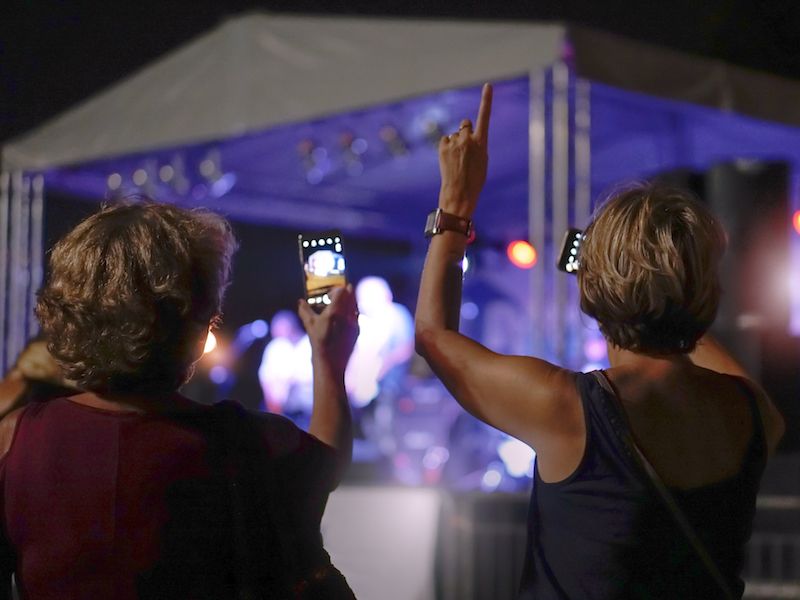
We’ve been looking forward to summer activities all year: swimming in the pool, going to the beach, and some activities that might injure your hearing. That’s correct, summer holds a few hidden potential risks to your ears, either from loud noises or the external situations you might find yourself in. Any sounds above 80 decibels can injure your ears, while swimming in pools or other bodies of water can result in enduring hearing loss. To keep your hearing safeguarded this summer, you need to be aware of your surroundings and take preventative measures. Keep reading to learn the summer’s six hidden hazards to your ears.
Wear Ear Protection at Concerts
Summer is concert season, but even if attend an outdoor venue, you still should take care of your hearing. Live music can reach over 90 decibels, even at outside shows, which is within the danger zone of hearing loss. That’s the reason it’s always a smart idea to use earplugs whether you’re going to a concert indoors or outdoors. Earplugs reduce the sound while still permitting you to hear and get into the music. If you’re bringing young kids to a concert, consider buying them a heavy duty pair of earmuffs because kids have more sensitive hearing than adults.
Fireworks Are More Than Just Loud
Honestly, there are a lot of reasons to avoid fireworks in the summer. It’s not only the 4th of July shows which are pro that can hurt your hearing, we mean the backyard fireworks which every summer cause hundreds of incidents. On top of causing hand injuries, loss of vision, and home fires, personal fireworks can also result in significant damage to your hearing since they are known to reach decibel levels of 155. This 4th of July, leave the fireworks to the pros and enjoy the show from a safe and sound distance.
Loss of Hearing Can be Brought About by Lawnmowers
If you’re really serious about your yard, it’s likely that you’re out there every week on your lawnmower, trimming your bushes and using your edger. But have you ever noted how off your ears feel after you finish, how everything sounds muffled or your ears are ringing? That’s because the lawn tools, which are constantly loud, impact your hearing over time. You may have noticed landscapers wearing some form of hearing protection, next time you do yard work with noisy power equipment, you should take a hint from them and use earplugs or earmuffs.
How to Safeguard Your Hearing When You’re at Beaches And Pools
Millions of people suffer from swimmer’s ear each summer, which occurs when bacteria-laden water becomes trapped inside your ear canal. Swelling and painful earaches are the result when the ear gets infected by the bacteria. It’s not only rivers and lakes that hold these bacteria, they can also be found in hot tubs and pools if they aren’t cleaned and treated properly. No irreversible damage should happen if you get your hearing checked out by a hearing specialist. To prevent swimmer’s ear, though, you should wear specialized swimming earplugs in the pool and have your pool water tested to make sure the chemical balance is safe.
Boats and Other Water Sports
If you enjoy the water, summertime is beach and boating time for you. But, boat and jet ski engines are usually noisy,we’re talking more than 100 decibels. Long term hearing injury can be the result after about 15 minutes of exposure to that kind of noise. Once again, it’s probably in your best interests to wear a pair of disposable, foam earplugs when you’re out on the water to make certain you don’t unintentionally harm your hearing.
Car Races Can Hurt Your Ears
It doesn’t make a difference what type of auto racing you like, motorcycle, midget, Formula 1, drag racing or stock cars. If you go to many auto-races this year, they all present a danger. 120 dB is well within the danger zone for hearing damage and a number of races go well above this. As mentioned before, your children should use muffs while you should wear earplugs at the very least. Because you might not get to enjoy the sounds of any races in the future if you don’t.
